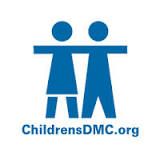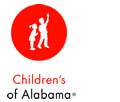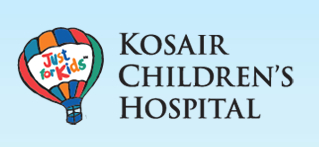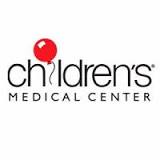Therapeutic Hypothermia to Improve Survival After Cardiac Arrest in Pediatric Patients-THAPCA-OH [Out of Hospital] Trial
| Status: | Completed |
|---|---|
| Conditions: | Cardiology, Hospital |
| Therapuetic Areas: | Cardiology / Vascular Diseases, Other |
| Healthy: | No |
| Age Range: | Any - 18 |
| Updated: | 10/1/2017 |
| Start Date: | September 2009 |
| End Date: | June 2014 |
Therapeutic Hypothermia After Pediatric Cardiac Arrest (Out of Hospital)
Cardiac arrest is a sudden, unexpected loss of heart function. Therapeutic hypothermia, in
which the body's temperature is lowered and maintained several degrees below normal for a
period of time, has been used to successfully treat adults who have experienced cardiac
arrest. This study will evaluate the efficacy of therapeutic hypothermia at increasing
survival rates and reducing the risk of brain injury in infants and children who experience a
cardiac arrest while out of the hospital.
which the body's temperature is lowered and maintained several degrees below normal for a
period of time, has been used to successfully treat adults who have experienced cardiac
arrest. This study will evaluate the efficacy of therapeutic hypothermia at increasing
survival rates and reducing the risk of brain injury in infants and children who experience a
cardiac arrest while out of the hospital.
Cardiac arrest occurs when the heart suddenly stops beating and blood flow to the body is
halted. It can occur while people are in the hospital because of a medical condition, or
while people are out of the hospital as a result of an accident or other causes. Cardiac
arrest is a serious event that is associated with high rates of death and long-term
disability. When a person experiences cardiac arrest, insufficient amount of blood flow and
oxygen can result in brain injury.
Therapeutic hypothermia is a therapy that involves a controlled lowering of the body
temperature and then maintenance of this lower temperature for a period of time. The
treatment may result in reduced brain injury. Therapeutic hypothermia has been successfully
used in adults who experience cardiac arrest to improve survival rates and health outcomes,
and it has also been studied in newborn infants who have suffered from perinatal asphyxia.
The purpose of this study is to evaluate the efficacy of therapeutic hypothermia at improving
survival rates and reducing brain injury in infants and children who experience cardiac
arrest while out of the hospital.
Study researchers will conduct this study in collaboration with the following two pediatric
clinical research networks: the Pediatric Emergency Care Applied Research Network (PECARN),
funded by the Emergency Medical Services for Children (EMSC) program, and the National
Institute of Child Health and Human Development (NICHD) Collaborative Pediatric Critical Care
Research Network (CPCCRN).
The study will enroll infants and children who have suffered a cardiac arrest while out of
the hospital. Randomization must occur within 6 hours of return of spontaneous circulation.
Participants will be randomly assigned to receive either therapeutic hypothermia or
therapeutic normothermia. Participants receiving therapeutic hypothermia will have their body
temperature reduced to between 32 to 34° Celsius (C) and will remain at this temperature for
2 days. Their body temperature will then be slowly increased to the normal temperature of 36
to 37.5° C, which will be maintained until 5 days after the cardiac arrest. Participants
receiving therapeutic normothermia will have their normal temperature maintained between 36
to 37.5° C for 5 days after the cardiac arrest. Special temperature control blankets will be
placed to maintain body temperature in the assigned range. After 5 days, each participant's
temperature will be managed by their medical care team.
While participants are in the hospital, they will undergo frequent blood and urine
collections, chest x-rays, and temperature measurements; parents of participants will
complete questionnaires. When participants are ready to leave the hospital, study researchers
will perform a physical and functional assessment. Twenty-eight days after the cardiac
arrest, researchers will contact parents of participants to gather information on the
participants' health and medical condition. At Months 3 and 12, a child development expert
will contact parents to gather medical information. At Month 12, participants will attend a
study visit for a neurologic examination and testing with a psychologist trained in
rehabilitation.
halted. It can occur while people are in the hospital because of a medical condition, or
while people are out of the hospital as a result of an accident or other causes. Cardiac
arrest is a serious event that is associated with high rates of death and long-term
disability. When a person experiences cardiac arrest, insufficient amount of blood flow and
oxygen can result in brain injury.
Therapeutic hypothermia is a therapy that involves a controlled lowering of the body
temperature and then maintenance of this lower temperature for a period of time. The
treatment may result in reduced brain injury. Therapeutic hypothermia has been successfully
used in adults who experience cardiac arrest to improve survival rates and health outcomes,
and it has also been studied in newborn infants who have suffered from perinatal asphyxia.
The purpose of this study is to evaluate the efficacy of therapeutic hypothermia at improving
survival rates and reducing brain injury in infants and children who experience cardiac
arrest while out of the hospital.
Study researchers will conduct this study in collaboration with the following two pediatric
clinical research networks: the Pediatric Emergency Care Applied Research Network (PECARN),
funded by the Emergency Medical Services for Children (EMSC) program, and the National
Institute of Child Health and Human Development (NICHD) Collaborative Pediatric Critical Care
Research Network (CPCCRN).
The study will enroll infants and children who have suffered a cardiac arrest while out of
the hospital. Randomization must occur within 6 hours of return of spontaneous circulation.
Participants will be randomly assigned to receive either therapeutic hypothermia or
therapeutic normothermia. Participants receiving therapeutic hypothermia will have their body
temperature reduced to between 32 to 34° Celsius (C) and will remain at this temperature for
2 days. Their body temperature will then be slowly increased to the normal temperature of 36
to 37.5° C, which will be maintained until 5 days after the cardiac arrest. Participants
receiving therapeutic normothermia will have their normal temperature maintained between 36
to 37.5° C for 5 days after the cardiac arrest. Special temperature control blankets will be
placed to maintain body temperature in the assigned range. After 5 days, each participant's
temperature will be managed by their medical care team.
While participants are in the hospital, they will undergo frequent blood and urine
collections, chest x-rays, and temperature measurements; parents of participants will
complete questionnaires. When participants are ready to leave the hospital, study researchers
will perform a physical and functional assessment. Twenty-eight days after the cardiac
arrest, researchers will contact parents of participants to gather information on the
participants' health and medical condition. At Months 3 and 12, a child development expert
will contact parents to gather medical information. At Month 12, participants will attend a
study visit for a neurologic examination and testing with a psychologist trained in
rehabilitation.
Inclusion Criteria:
- Patient suffered cardiac arrest requiring chest compressions for at least 2 minutes
(120 seconds) with ROSC/ROC; AND
- Age greater than 48 hours (with a corrected gestational age of at least 38 weeks) and
less than 18 years; AND
- Patient requires continuous mechanical ventilation; AND
- The cardiac arrest was unplanned (i.e., not part of cardiac surgical procedure)
Exclusion Criteria:
- The parent or legal guardian does not speak English or Spanish (the only two languages
in which VABS II is standardized)
- Randomization is impossible within six hours of ROSC; OR
- Patient is on extracorporeal membrane oxygenation (ECMO) when arrest occurs; OR
- Continuous infusion of epinephrine or norepinephrine at very high doses (≥2
ug/kg/minute) received immediately prior to randomization; OR Glasgow Coma Scale motor
response of five (localizing pain or for infants less than two years, withdraws to
touch) or six (obeys commands, or for infants, normal spontaneous movement) prior to
randomization; OR
- History of a prior cardiac arrest with chest compressions for at least two minutes
during the current hospitalization but outside the 6 hour window for randomization; OR
- Pre-existing terminal illness with life expectancy < 12 months; OR
- Lack of commitment to aggressive intensive care therapies including do not resuscitate
orders and other limitations to care; OR
- Cardiac arrest was associated with severe brain, thoracic, or abdominal trauma; OR
- Active and refractory severe bleeding prior to randomization; OR
- Near drowning in ice water with patient core temperature ≤32 °C on presentation; OR
- Patient is pregnant; OR
- Patient participation in a concurrent interventional trial whose protocol, in the
judgment of the THAPCA investigators, prevents effective application of one or both
THAPCA therapeutic treatment arms, or otherwise significantly interferes with carrying
out the THAPCA protocol; OR
- Patient is newborn with acute birth asphyxia; OR
_ Patient cared for in a neonatal intensive care unit (NICU) after arrest (ie, would
not be admitted to PICU); OR
- Patient has sickle cell anemia; OR
- Patient known to have pre-existing cryoglobulinemia; OR
- Central nervous system tumor with ongoing chemotherapy or radiation therapy; OR
- Chronic hypothermia secondary to hypovolemic, pituitary, or related condition for
which body temperature is consistently below 37 °C ; OR progressive degenerative
encephalopathy; OR
- Any condition in which direct skin surface cooling would be contraindicated, such as
large burns, decubitus ulcers, cellulitis, or other conditions with disrupted skin
integrity (NOTE: patients with open chest CPR should be included but placement of
cooling mattresses will be modified as needed); OR
- Previous enrollment in the THAPCA Trials.
We found this trial at
34
sites
Children's Hospital of Michigan Since 1886, the Children's Hospital of Michigan has been dedicated to...
Click here to add this to my saved trials
Children's Hospital of Alabama Children
Click here to add this to my saved trials
University of California at Los Angeles The University of California, Los Angeles (UCLA) is an...
Click here to add this to my saved trials
Childrens Hospital Los Angeles Children's Hospital Los Angeles is a 501(c)(3) nonprofit hospital for pediatric...
Click here to add this to my saved trials
Kosair Children's Hospital For more than a century, Kosair Children's Hospital and its predecessor hospitals...
Click here to add this to my saved trials
Children's Hospital of Orange County For more than 45 years, CHOC Children’s has been steadfastly...
Click here to add this to my saved trials
Univ of Rochester Medical Center One of the nation's top academic medical centers, the University...
Click here to add this to my saved trials
Click here to add this to my saved trials
Click here to add this to my saved trials
Click here to add this to my saved trials
Click here to add this to my saved trials
Click here to add this to my saved trials
Click here to add this to my saved trials
Click here to add this to my saved trials
Click here to add this to my saved trials
Children's Medical Center of Dallas Children's Medical Center is private, not-for-profit, and is the fifth-largest...
Click here to add this to my saved trials
Click here to add this to my saved trials
Click here to add this to my saved trials
Click here to add this to my saved trials
Click here to add this to my saved trials
Click here to add this to my saved trials
Click here to add this to my saved trials
Click here to add this to my saved trials
Click here to add this to my saved trials
Click here to add this to my saved trials
Phoenix Children's Hospital Phoenix Children's Hospital has provided hope, healing, and the best healthcare for...
Click here to add this to my saved trials
University of Pittsburgh Medical Center UPMC is one of the leading nonprofit health systems in...
Click here to add this to my saved trials
Click here to add this to my saved trials
Click here to add this to my saved trials
Click here to add this to my saved trials
Click here to add this to my saved trials
Click here to add this to my saved trials
Click here to add this to my saved trials
Click here to add this to my saved trials










